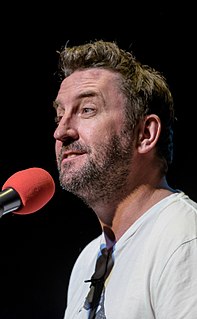A Quote by H. L. Mencken
I never listen to debates. They are dreadful things indeed. The plain truth is that I am not a fair man, and don't want to hear both sides. On all known subjects, ranging from aviation to xylophone-playing, I have fixed and invariable ideas. They have not changed since I was four or five.
Related Quotes
In writing a novel, the writer must be able to identify emotionally and intellectually with two or three or four contradicting perspectives and give each of them very a convincing voice. It's like playing tennis with yourself and you have to be on both sides of the yard. You have to be on both sides, or all sides if there are more than two sides.
D.H. Lawrence, I think, defined the difference between writing an article and writing a novel very well. He said, in writing a novel, the writer must be able to identify emotionally and intellectually with two or three or four contradicting perspectives and give each of them very a convincing voice. It's like playing tennis with yourself and you have to be on both sides of the yard. You have to be on both sides, or all sides if there are more than two sides.
It is a truth universally acknowledged, that a single man in possession of a good fortune, must be in want of a wife. However little known the feelings or views of such a man may be on his first entering a neighbourhood, this truth is so well fixed in the minds of the surrounding families, that he is considered as the rightful property of someone or other of their daughters.
Ideas about the scope and meaning of freedom of speech do expand and contract with the times. At the moment, we live in an age that is very permissive, both legally and socially, on a wide range of subjects from Karl Marx to kinky sex. This has not always been the case. Things that even children freely see and read and hear today -- writings, pictures, words -- would have been banned as just plain obscene, even for adults, as recently as the middle of the twentieth century.
But what I would like to say is that the spiritual life is a life in which you gradually learn to listen to a voice that says something else, that says, "You are the beloved and on you my favour rests."... I want you to hear that voice. It is not a very loud voice because it is an intimate voice. It comes from a very deep place. It is soft and gentle. I want you to gradually hear that voice. We both have to hear that voice and to claim for ourselves that that voice speaks the truth, our truth. It tells us who we are.
Not the violent conflict between parts of the truth, but the quiet suppression of half of it, is the formidable evil; there is always hope when people are forced to listen to both sides; it is when they attend to only one that errors harden into prejudices, and truth itself ceases to have the effect of truth, by being exaggerated into falsehood.




































